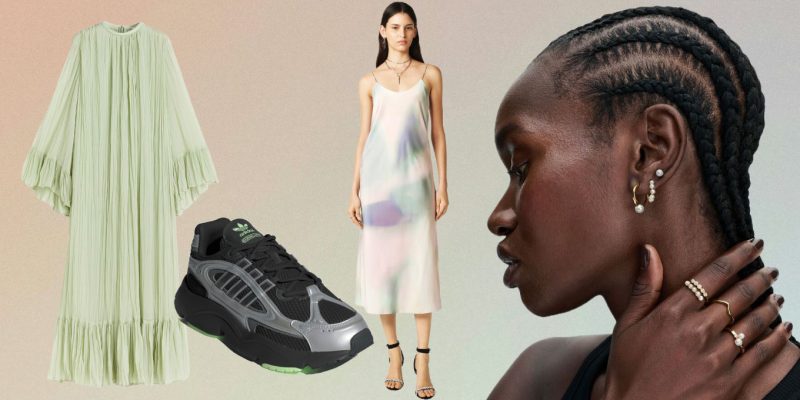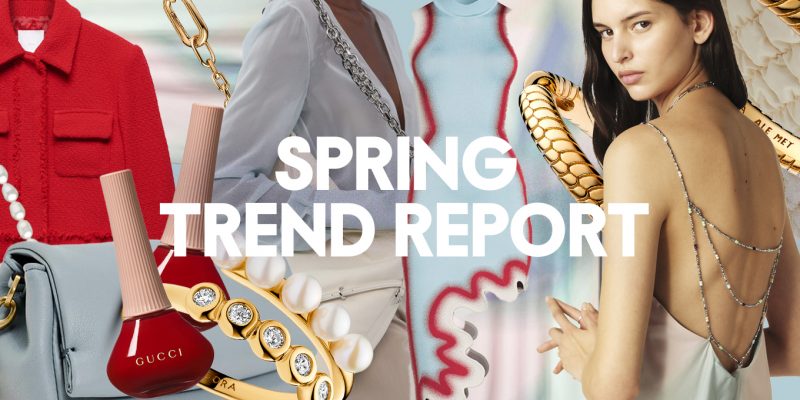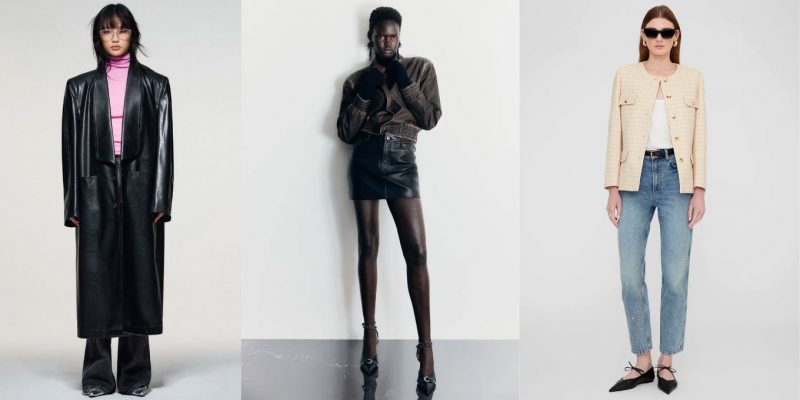Trends
The Case for Wearing Lingerie as Outerwear
As sheer designs rule the runways, designers are welcoming an era of bodily freedom, genderless dressing and finally freeing the nipple.
by : Natalie Michie- Sep 21st, 2022
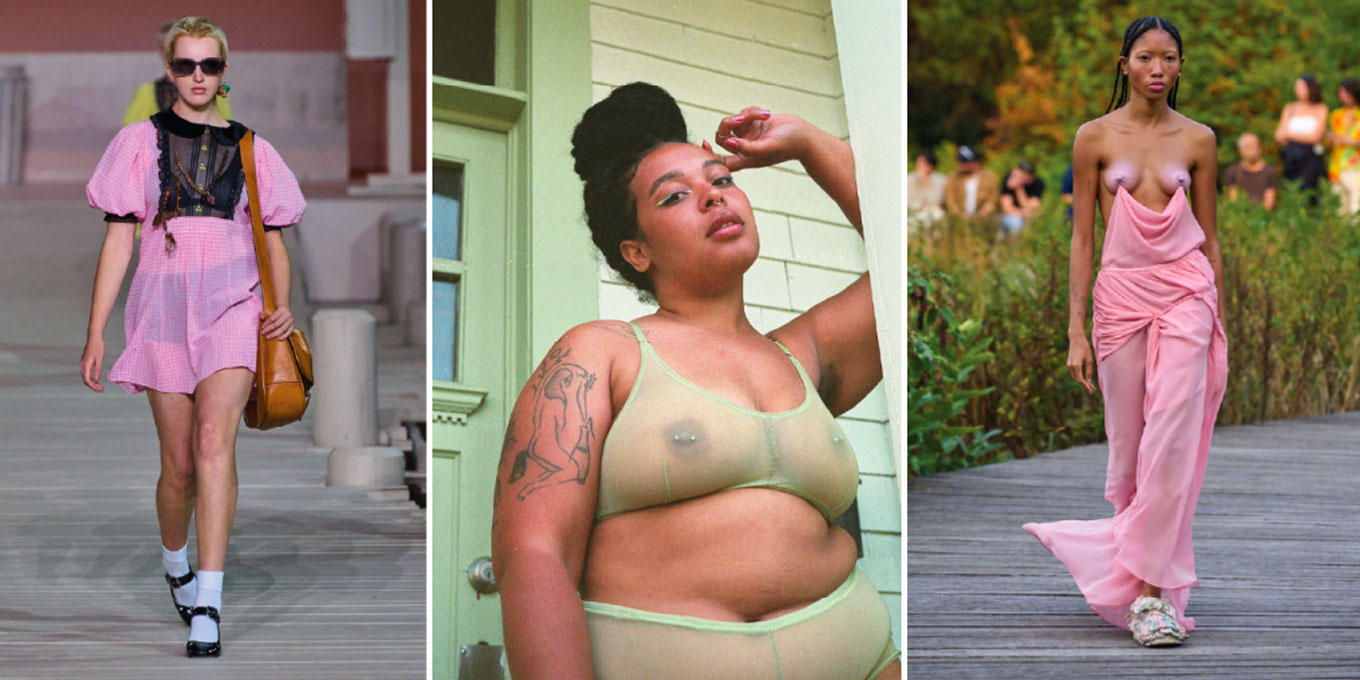
Imaxtree (1-Coach, 3-Collina Strada), Kirstin Elyse (2)
What constitutes “appropriate” attire? And why are certain features offensive on one body, but socially acceptable on the next? Fashion’s newfound fixation on sheer clothing asks us to reconsider these questions.
With tulle, chiffon and mesh materials dominating recent runways, the post-pandemic style landscape gets more daring and provocative each day. As hemlines rise higher, patterns become bolder, and intentional nip slips are normalized, sheer outfits celebrate the body — and all it has endured — in a whole new way.
Communicating contrasting messages of concealment and exposure, translucent clothing is about taking up space. But beyond that, it’s about demystifying a garment that has long been sexualized and gendered: lingerie.
On the Fall-Winter 2022-2023 runways, designers used mesh materials to showcase upper thighs, stomachs and nipples. Unsurprisingly, the risqué trend only continued at New York Fashion Week. Mirror Palais showcased a translucent bridal frock with a white thong peeking through. Coach put an edgy twist on the traditional school-girl oeuvre with gauzy babydoll dresses that exposed dark undergarments. And other labels, like Tia Adeola and Fe Noel, sent models down the runway in sexy sheer lingerie.
cindy kimberly’s bridal look for mirror palais pic.twitter.com/403QMvAUrN
— ✨ (@PRADAXBBY) September 14, 2022
The case for wearing innerwear as outerwear has also transcended to street style, thanks to — you guessed it — Rihanna. Earlier this year, the then-pregnant beauty mogul went viral after donning a Dior sheer slip that revealed her baby bump. Naturally, other showstopping celeb looks have since followed suit: from Bella Hadid’s Met Gala after-party ensemble to Jodie Turner-Smith’s lingerie slip at the Venice Film Festival.
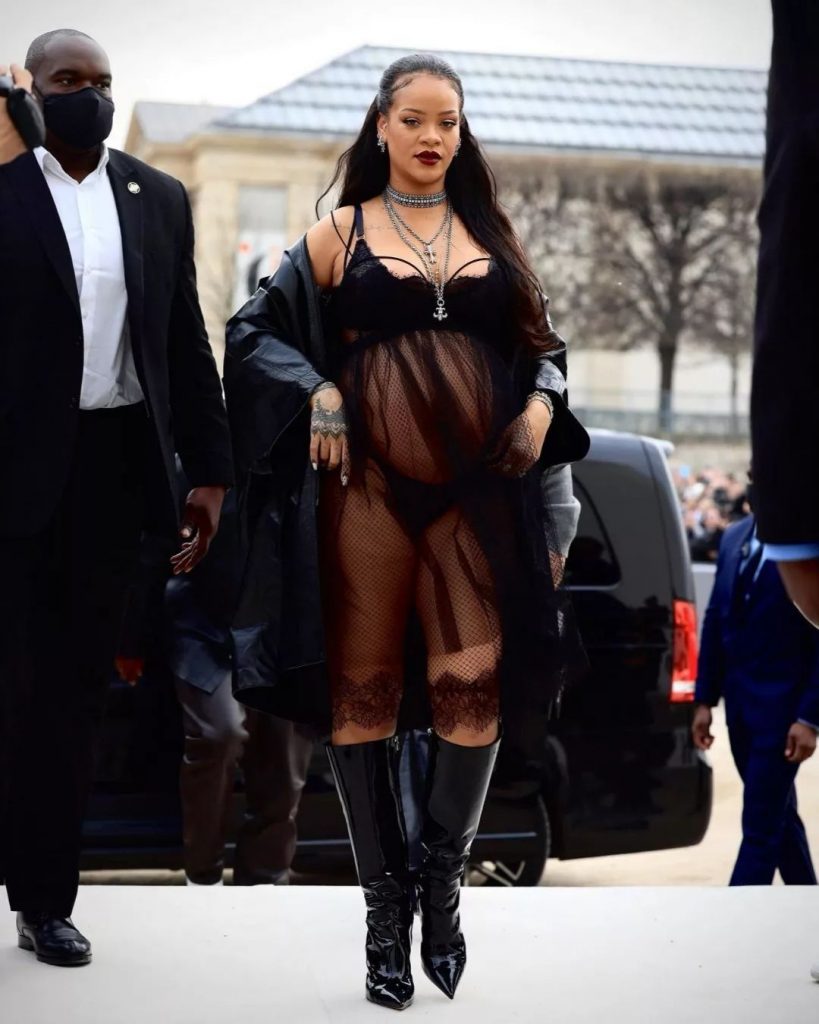 Getty Images
Getty Images This surge in sheer clothing coincides with a cultural push for bodily freedom, says Victoria-based designer Elyse Mathes. “There are fewer places to hide in sheer materials,” she explains. “So in a sense, the body is freer as it is more exposed.”
Mathes’s brand, Elyse On Mars, creates mesh pieces that are meant to be worn as both inner or outerwear, with the goal of normalizing size-inclusive sheer dressing. “After many years of [battling with] self-image, body shaming, disordered eating and a completely skewed perception of how a body should look, I’ve found sheer materials really liberate the human form and allow me to feature such a variety of body types.”
Because lingerie has been historically associated with women, it’s long been over-sexualized. The very moniker “unmentionables” implies that it’s a dirty secret we shouldn’t openly acknowledge. But today, undergarment outfits are as ubiquitous as the little black dress. Along with bodily freedom, the demystification of sheer clothing goes hand in hand with a new era of ruleless gender expression.
Case in point: the growing market for men’s lingerie. What was once a non-existent subsect of fashion now has shoppable options from big brands like Victoria’s Secret and Savage X Fenty. And for his Spring 2023 collection, Tom Ford sent models down the runway in his and hers lacy underwear sets. Ultimately, the unisex-ification of undergarment fashion is allowing lingerie to be more accessible. Mathes hopes it will make women’s bodies less taboo, too.
boyfriend and girlfriend underwear by tom ford ss23 pic.twitter.com/fJkbNxKSsa
— andriana シ (@MUGLERMIND) September 15, 2022
“Nipples have become such an unnecessary line in the sand for what is deemed appropriate or inappropriate,” she says. “And I would love to see the surge of sheer fashion disrupt the taboo associations around them.” Already, it seems the trend is doing just that.
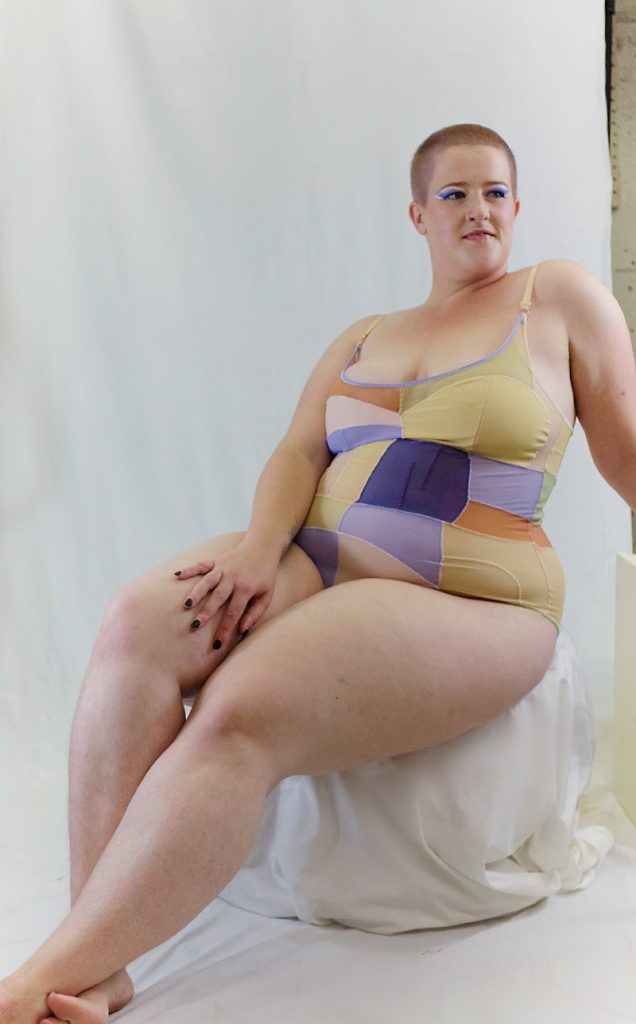 Elyse Mathes
Elyse MathesAt New York Fashion Week, Collina Strada presented a chiffon ensemble that hung from a model’s airbrushed breasts, making nipples the main accessory instead of a scandalous side feature. Not to mention, this summer’s best-dressed lists have been peppered with lingerie-adjacent frocks that showcase uncensored nipples. From Florence Pugh in a Valentino Barbiecore tulle number to Mariacarla Boscono wearing couture Jean Paul Gaultier by Glenn Martens, the increased representation of sheer wares is a way of throwing out the proverbial rulebook for appropriate attire.
Make no mistake: see-through clothing has been around for centuries. Through the 1900s, its popularity coincided with moments of cultural change — from 1920s lingerie-donning flappers who pushed for the social liberation of young women to to Yves Saint Laurent creating the “nude look” during the sexual revolution of the 1960s. But with the pandemic inspiring a unique air of evocative designs, near-naked dressing has taken on new meaning.
the ostrich dress (1966) by yves saint laurent. it was his first sheer look and part of the start of the sexual revolution pic.twitter.com/3HYdyHbEKr
— martina (@marschigo) August 29, 2020
There’s an overt lack of security in sheer clothing. As we emerge from an era where we covered up out of necessity, gauzy garments signal a sense of exposure, defiance and celebratory styling. Mathes hopes their modern popularity will normalize the act of dressing to feel sexy, regardless of gender or size.
“For so long, [lingerie] has been designed only for a small group of body types, leaving the majority of us to wonder, ‘Where do I fit in here?’” she explains. With the new age sheer trend, we see right through those outdated traditions.
Newsletter
Join our mailing list for the latest and biggest in fashion trends, beauty, culture and celebrity.
Read Next
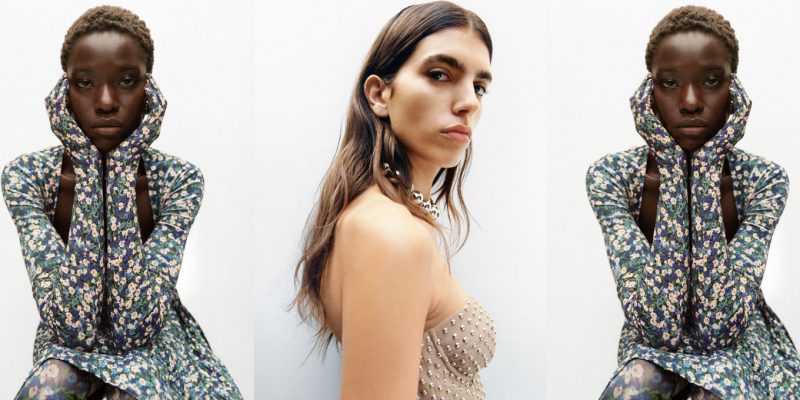
Fashion
H&M's Latest Designer Collab With Rokh Just Dropped (And It's So Good)
We chatted with the emerging designer about the collaboration, his favourite pieces and more.
by : Melissa Fejtek- Apr 18th, 2024

Culture
5 Toronto Restaurants to Celebrate Mother’s Day
Treat your mom right with a meal at any of these amazing restaurants.
by : Rebecca Gao- Apr 18th, 2024
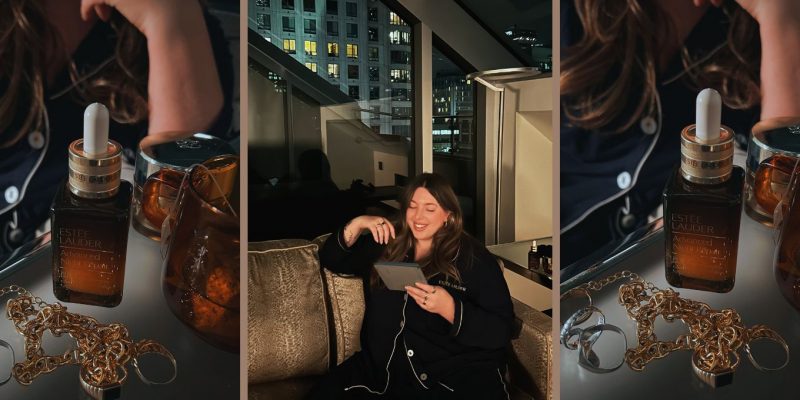
Beauty
Tested and Approved: A Skin Saviour That Works While You Sleep
Wake up with your glowiest skin yet—even if you didn’t clock eight hours.
by : ELLE Canada- Apr 11th, 2024


